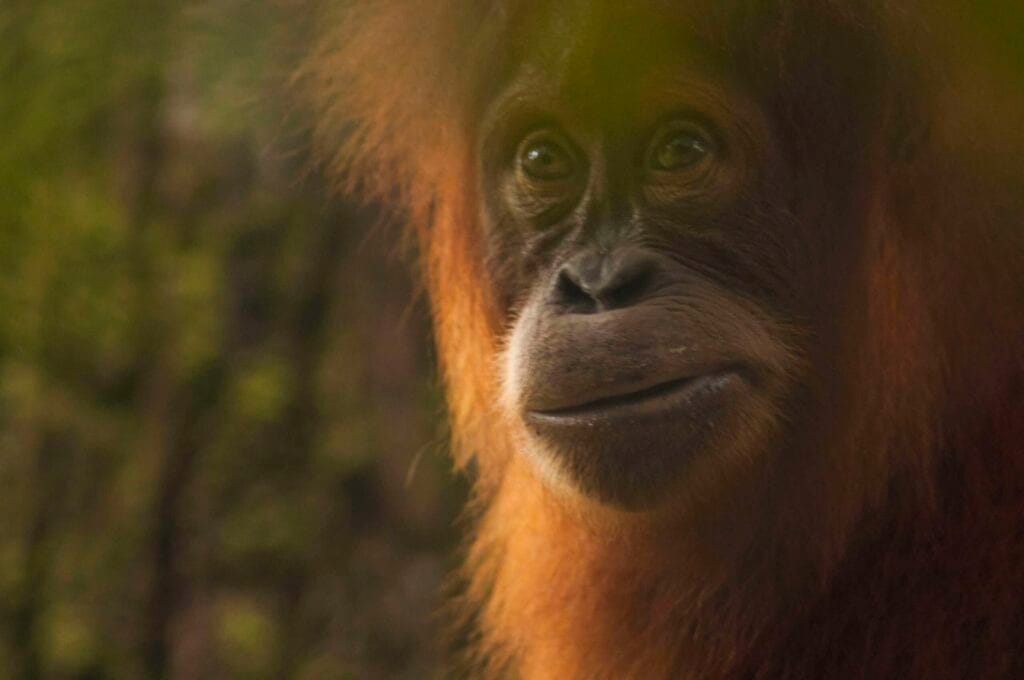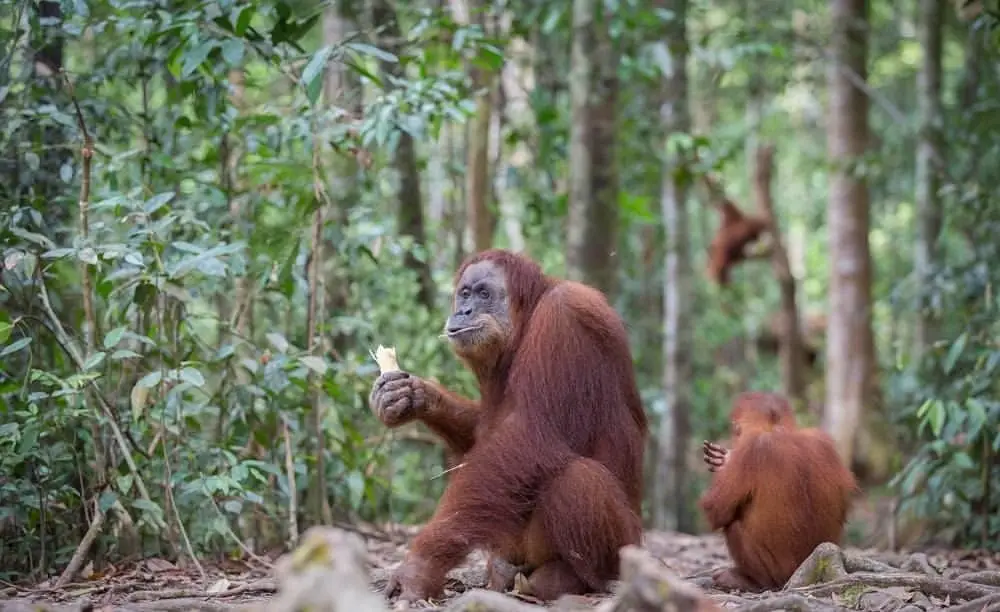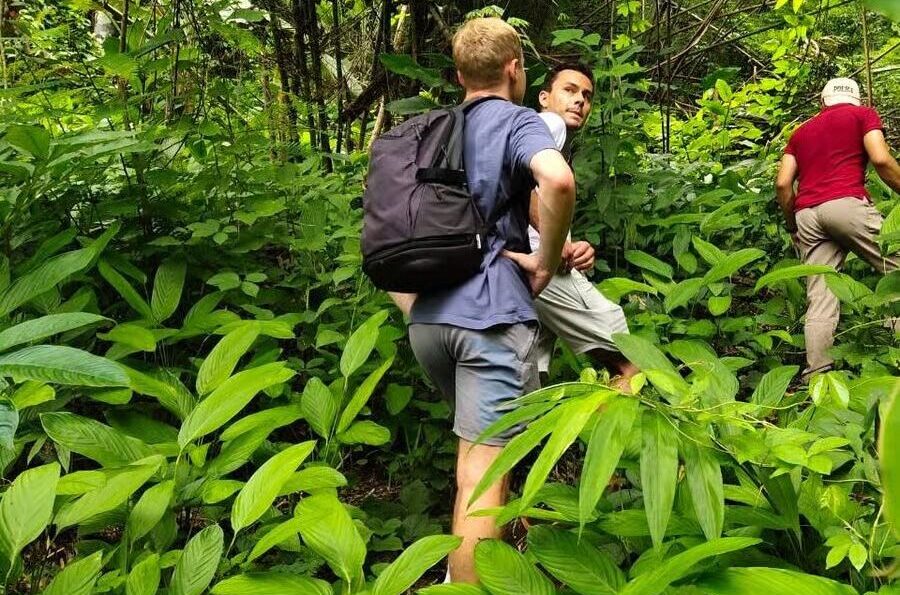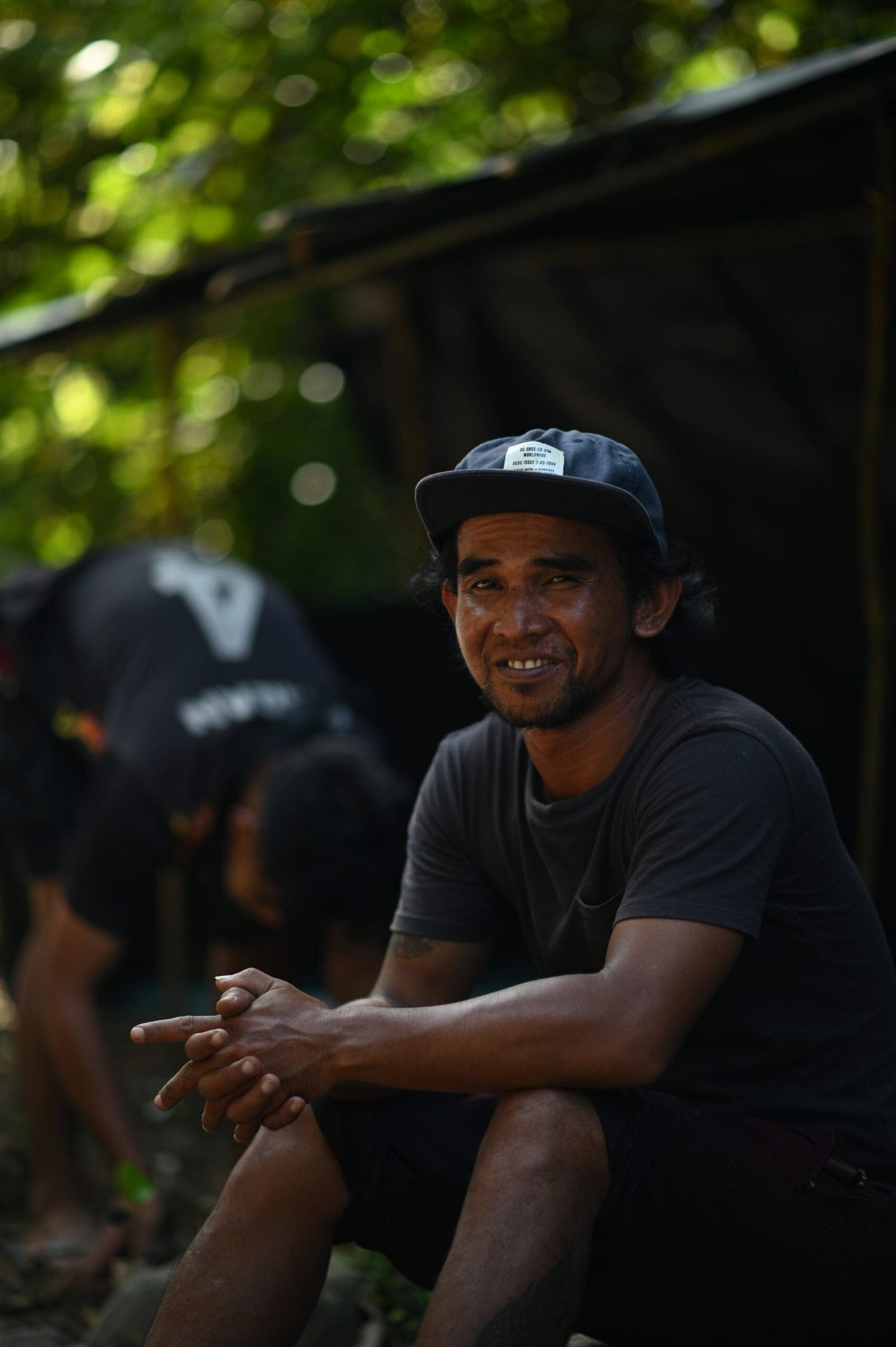The Dangers of Feeding Wild Orangutans: Understanding Their Needs and Role in the Ecosystem
Introduction to Orangutans and Their Habitat
Orangutans are remarkable great apes primarily found in the rainforests of Borneo and Sumatra. These two islands are home to the two distinct species: the Bornean orangutan (Pongo pygmaeus) and the Sumatran orangutan (Pongo abelii). Both species are highly adapted to arboreal life, spending most of their time in the tree canopy where they construct nests from branches and foliage to sleep. Their geographical distribution across these islands is critically limited by deforestation and habitat destruction, making their survival increasingly precarious.
The natural habitat of orangutans plays a vital role in the rainforest ecosystem. Rainforests are rich in biodiversity and contribute significantly to cloud formation, rainfall, and overall climate regulation. They serve as a crucial habitat not only for orangutans but also for countless other species. Orangutans, with their fruit-based diet, act as essential seed dispersers, thus playing a significant part in maintaining the health and diversity of their environment. Their feeding habits encourage forest regeneration, reinforcing the intricate balance necessary for sustaining various life forms in the rainforest.
In terms of social structures, orangutans are typically solitary creatures. Adult males tend to have broader home ranges than females, who often travel with their dependent offspring. Their behavior patterns reflect complex emotions and social interactions, formed through their long learning processes and experiences. They exhibit advanced cognitive abilities, such as tool use and problem-solving, which differentiates them from other great apes. Understanding these unique traits and their ecological role emphasizes the importance of preserving their habitats, ensuring both the survival of orangutans and the integrity of the rainforest ecosystem they inhabit.
Dietary Needs of Orangutans
Orangutans are predominantly frugivorous, meaning their diet consists mainly of fruits, but they are also known to consume a range of plant materials, which includes leaves, seeds, and occasionally insects. In fact, fruit makes up about 60% to 90% of their diet, with their preferences varying based on seasonal availability and geographic location. The primary fruits they favor include durian, figs, and various berries, which not only provide essential nutrients but also play a crucial role in their survival and reproductive health.
The dietary requirements of orangutans are critical for their overall well-being. They need a balanced intake of carbohydrates, proteins, vitamins, and minerals to ensure proper growth and maintenance of their physiological systems. For instance, fruits provide the necessary sugars for energy, while leaves contribute to fiber intake, which is vital for digestion. Additionally, by consuming large quantities of fruit, orangutans participate in seed dispersal. When they eat fruits and later defecate, they help spread those seeds within their habitat, promoting forest regeneration and maintaining biodiversity.
This seed-dispersal process is fundamental not only for orangutans but for the entire forest ecosystem. The health of tropical forests heavily relies on the activities of their herbivores, including orangutans. By facilitating the growth of new plants and trees, they contribute to habitat stability and resilience. Furthermore, forests serve as carbon sinks and are essential in combatting climate change, highlighting the interconnectedness of dietary habits and environmental health.
Understanding and respecting the dietary needs of orangutans is paramount. When humans interfere by providing food, it disrupts their natural foraging behavior and undermines their role in the ecosystem. Therefore, promoting awareness of their dietary needs can foster more effective conservation efforts and advocate for their natural habitats.
The Impact of Human Interaction on Wild Orangutan
Engaging with wild orangutans, particularly through feeding, has significant and often detrimental effects on their natural behaviors and overall well-being. While the intention may stem from goodwill, regular human interaction leads to a range of issues that detrimentally impact these magnificent creatures. One major consequence is the disruption of the orangutans’ natural foraging instincts. In the wild, they are adapted to seeking and consuming a diet composed of various fruits, leaves, and insects found within their forest habitat. However, when they are provided with food by humans, they may start to rely on these readily available sources, diminishing their ability to independently forage and adapt to their natural environment.
Moreover, feeding wild orangutans can result in the adoption of unnatural diets. Foods given by humans may not only be inappropriate but also potentially harmful, leading to nutritional deficiencies or health issues. For example, feeding them processed foods or foods high in sugars can lead to obesity, dental problems, and other health complications that are detrimental to their survival. With diminishing natural foraging skills and altered diets, orangutans face increasing challenges in securing their own food and maintaining their health, fostering a dependency that is difficult to reverse.
In the broader context, the repercussions of human interaction extend beyond individual animals to affect population dynamics and conservation efforts. Once orangutans begin to associate humans with food, their behavioral patterns change, making them more vulnerable to poaching and habitat degradation. Additionally, these changes can influence the ecological balance in which they exist, as their role in seed dispersal and forest regeneration may become compromised. Thus, understanding the critical need to refrain from feeding wild orang-utans is essential not only for their protection but also for preserving the delicate ecosystems in which they play a pivotal role.
Protecting Orangutans: Best Practices for Conservation
To ensure the well-being of orang-utans and their habitats, it is crucial for both tourists and local communities to adopt best practices that prioritize conservation. First and foremost, responsible wildlife encounters should be encouraged. Individuals must refrain from feeding orangutans or attempting to interact directly with them. Such actions can disrupt their natural behavior, impact their health, and contribute to their dependency on human-provided food, ultimately undermining their survival in the wild.
Tourists should seek out ethical wildlife tours that promote respect for orang-utans and their environment. Engaging with conservation professionals can enhance understanding of orangutan behavior and ecology, fostering a greater appreciation for these magnificent creatures. Furthermore, local communities play a pivotal role in protecting orangutans by embracing sustainable practices that reduce habitat destruction and encourage ecological balance. This involves supporting projects that aim to restore degraded forests and protect existing habitats from logging and agricultural encroachment.
Moreover, supporting reputable conservation organizations is vital. Donations and volunteer opportunities can significantly impact the health of orangutan populations and their ecosystems. Advocacy for policies that promote wildlife protection at a governmental level is equally important. By mobilizing communities and encouraging responsible tourism, collective action can enhance conservation outcomes.
In addition to direct actions, public awareness campaigns can be effective in informing individuals about the threats faced by orang-outan’s. Educational initiatives can empower locals and tourists alike to make informed choices regarding wildlife interaction and habitat sustainability. Through collaborative efforts to prioritize the conservation of orangutans and their ecosystems, individuals can help ensure that these remarkable creatures continue to thrive in their natural habitat for generations to come.








